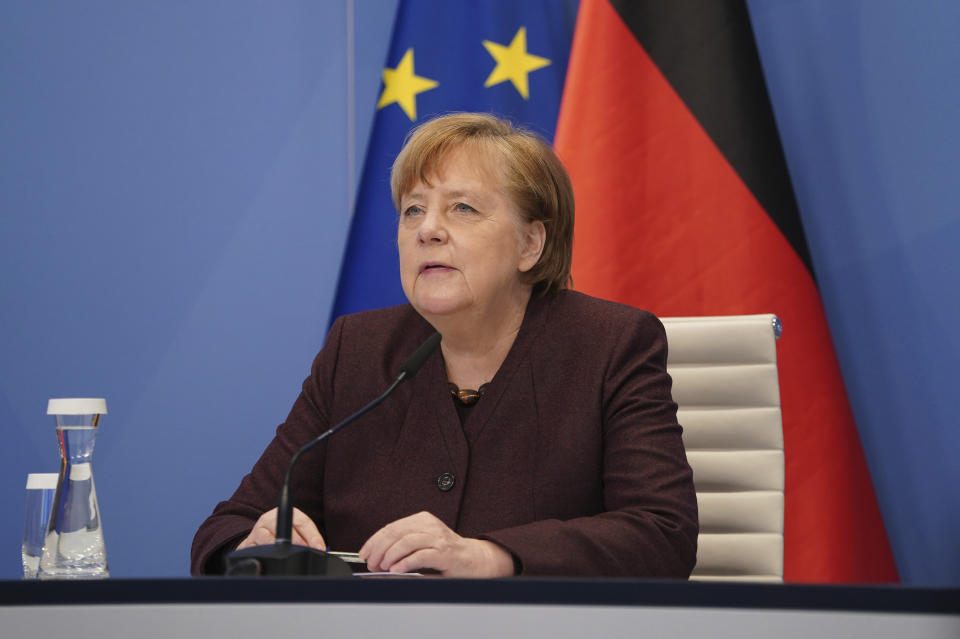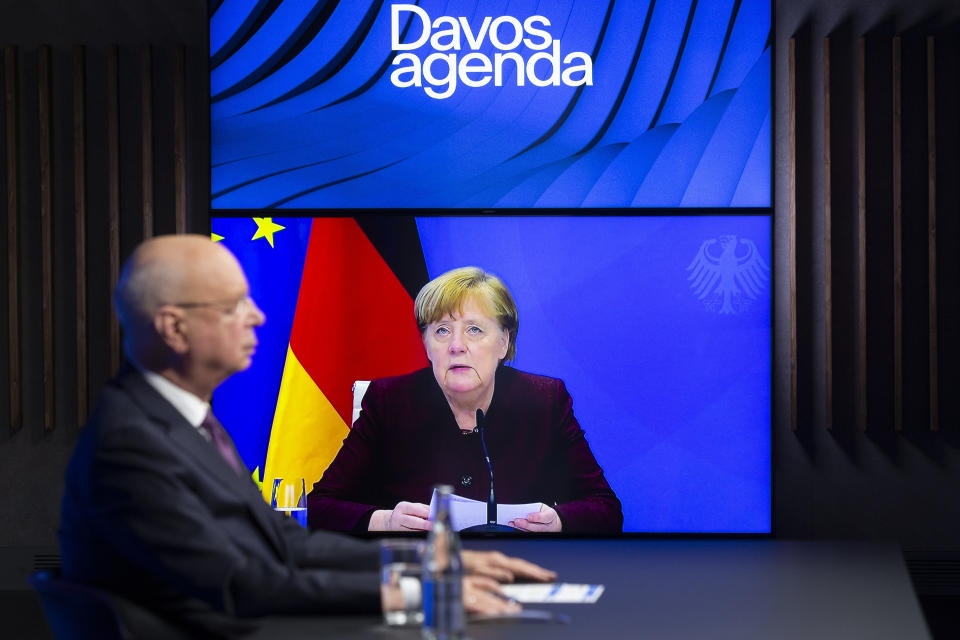Merkel: pandemic shows German weaknesses, need to cooperate
BERLIN (AP) — German Chancellor Angela Merkel conceded that the coronavirus pandemic has highlighted significant shortcomings in her country as she told the World Economic Forum on Tuesday that it has underlined the need for international cooperation on issues such as vaccines.
Germany had a relatively successful first phase of the pandemic, but saw infections shoot up during the winter months and recently passed the threshold of 50,000 deaths, Europe’s fifth-highest toll. A lengthy second lockdown has slowly brought down the number of new cases in recent weeks.
In Germany, “the speed of our action leaves a lot to be desired,” Merkel said in a speech to the forum, being held virtually rather than in its usual Davos, Switzerland venue. “Processes have often become very bureaucratic and take a long time, so we have to work on that.”
Germany's solid public finances allowed it to give considerable support to the economy in the pandemic and years of investment in research have paid off, Merkel said.
But “where we didn't look good, and that is still being seen today, is the lack of digitization in our society — that begins with the interlinking of health offices, it's seen in the digitization of administration and in the digitization of our education system, when we talk about distance teaching and distance studying.”
That issue will be addressed by Germany's stimulus efforts, Merkel said. She added that “we have a very good individual health system, but when it comes to community health, community and prevention, we don't yet have sufficient resilience.”
Looking beyond Germany, Merkel said she now feels even more vindicated in her long-standing calls for a cooperative approach to world affairs.
“For me, it is even clearer than before ... that we must choose a multilateral approach, that an approach of isolation won't help us solve problems,” she said. That stance often put her at odds with the U.S. under former President Donald Trump.
Merkel pointed to the importance of a “multilateral approach to vaccination,” embodied in the COVAX facility, an effort to get affordable shots to poor and middle-income countries. “This is about fair distribution, and not just the question of money,” she said.
“Multilateralism means not just that we work together any way, but that we work together transparently,” she said.
There wasn't enough transparency when the pandemic started regarding its outbreak in China among other things, and lessons need to be drawn, she added, welcoming the arrival of a World Health Organization delegation in China.
The Biden administration's decision to recommit to the WHO after Trump decided to leave the U.N. health agency was “a good and important signal," Merkel said.
She also called for the “standstill” of recent years at the World Trade Organization to be overcome, calling the Geneva-based agency “the core component of rules-based trade in the world.”



